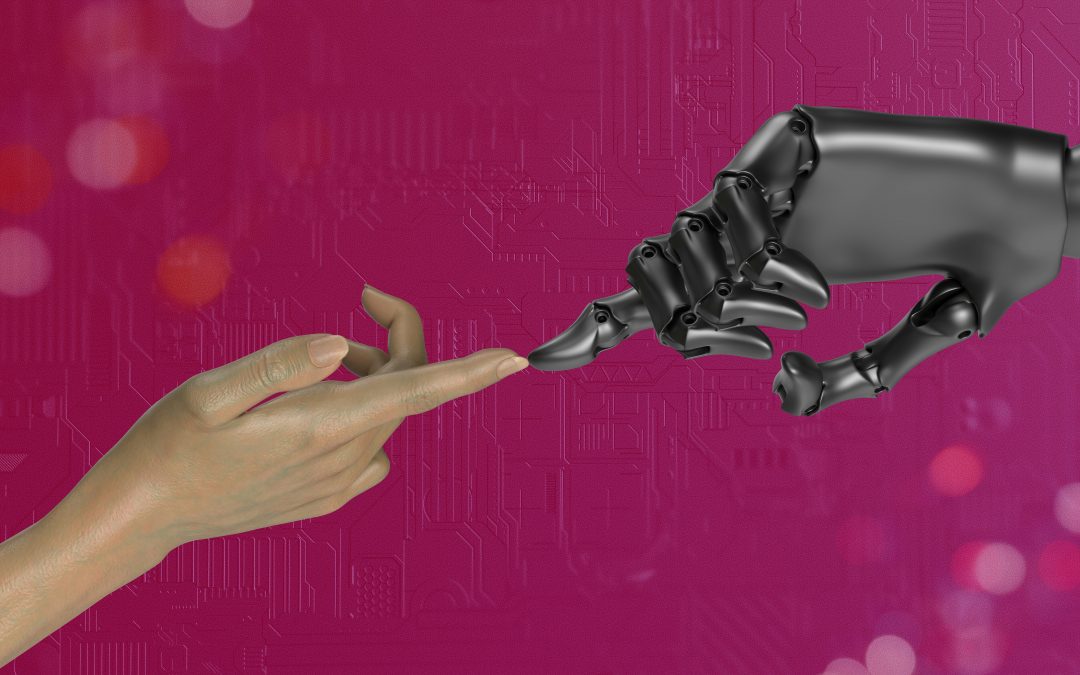DMEXCO is the meeting place and a community for key players in digital business. By some stretch its Europe’s largest digital marketing expo held in Cologne, with over 41,000 visitors, 1,000 exhibitors, and even has its own app!
The large themes that came out of DMexco this year were digital transformation (centring around placing the consumer at the heart of the business), AI (using it to work smarter), and lots of talks centring around diversity and culture.
My favourite talk came from Publicis about ‘Reinventing the industry with AI and Creativity at the Core’.
A talk not about what the subject suggested, but more around how they set about changing their agency value proposition to incorporate behavioural science, agile optimisationn and tech innovation themselves. Publicis changed the way they presented themselves from an agency to a consultancy and centre for dynamic creative, starting the process of transformation from dinosaur to phoenix.
Starting with client need, they are demanding to increase growth, cut costs and grow brand trust, and the need is especially prominent within these three key themes:
Global diversity
Their change in proposition centred around the creation of Marcel (not Ross Gellar’s monkey from friends). The premise for Marcel is giving their 80,000-strong employee base ‘the power of one’ to bring together their globally diverse talent pool.
Marcel will provide multiple ways each employee can contribute to ongoing projects or pitches. These individuals will either be found and recommended by the AI, or they will be able to pitch ideas. Marcel will also have access to employees’ calendars and will be able to make recommendations that take the person’s workload and availability into account, alongside behavioural patterns, needs, desires and experience. Marcel will also serve as a repository and usable archive of all Publicis Groupe’s work and assets, making it easy for employees to seek inspiration, historical client work and do research.
Aside from the sheer scale in the ability to create connection between the 80,000-strong employee base, the real key point that stands out for me is that it gives everyone in the group the opportunity to genuinely make a difference to a client’s success. As marketers, we have opted for a career in the professional service industry, we are curious in nature and enjoy learning, teaching and working with other likeminded people. We like to create meaningful connections with both colleagues and clients and genuinely make a difference to our clients, be it raising money to fund vital research for charities or to help retailers sell more products of goods or to increase the basket value of a customer.
As a client, you’d want the best talent working on unravelling your business challenges – people capable of bringing a diverse, non-siloed way of thinking, and generating the best, freshest ideas to deliver work that genuinely makes a difference. Why should geography / language and culture be a barrier to this?
Change from a holding company to platform
Rather than having a siloed, divisional approach which has been the ‘classic’ agency model of the past decade, Publicis have used Marcel to re-focus their business, putting the client at the centre and changing their financial reporting model to focus on their clients’ success rather than divisional. As a marketing society, we are making our complexity complex and there needed to be a change. Clients are changing faster than we are and so Publicis looked at making their complexities invisible and created an accelerated model.
So aside from getting Microsoft to build you a platform that connects your global workforce, how do you do this? The frantic pace of agency life means it’s often so easy to get into a rut – we face constant time pressures from continual amendments to client briefs, having to re-plan campaigns, endless meetings for meetings sake and not to mention the constant dripping tap that is your inbox as well as other communication platforms that constantly needs attention.
Instead, use technology creatively and to enable. Despite your best Excel wizard’s efforts, it’s not going to be able to churn through big data as quickly as machine learning tools can sift through millions of rows of data.
We shouldn’t fear technology, it’s there to help automate the boring mundane tasks that so many of us wish we weren’t doing. The second and most important point is that you need to give talent the time to explore, to innovate, to express themselves with the freedom of thought to pour their personality into delivering work that creates bottom line value to clients. Unless you do that, you’ll just be another agency delivering mediocre work and you’ll eventually lose the talent you worked so hard to attract in the first place.
“The market is demanding a new bundle”
With the introduction of consultancy business like Deloitte and Accenture, clients are demanding change by looking at using these types of business to transform marketing, connecting data with creative and tech and delivering personalisation at scale for their clients. The balance of power in decision making is also shifting from CIOs and Heads of IT to CMOs, who are much more IT literate and understand digital and business transformation. It’s a people business and you need to find a middle culture between creatives and data scientists. When tech and consulting is at the service of a big idea and data is at the core, you have the winning model.
The ascent of consultancy houses like Deloitte and Accenture has probably brought this to the forefront of people’s mind now as they are regularly seen as part of the agency rosters, given they have a holistic proposition when covering marketing, innovation and business transformation. Despite having this juggernaut of a proposition though, they struggle to retain their greatest minds – the talent like to live in a specialist agency where there is greater pace and they can flex their entrepreneurial penance. There they can become an expert in their field and due to the size of the boutique, they are able to drive change. Both models, however, can lead to a disconnected experience for the customer, meaning there is no right or wrong model.
There is a gap in the market and this is where it’s been really refreshing to work for Edit. We use tech to automate the ‘boring, do heavy lifting data interpretation’, we have a consultative approach to working with our clients in partnership to help understand and solve their business challenges. Our size means we’re super agile and nimble, and we can execute line customer experience and retention strategies through some of the best specialist practitioners in the industry.









